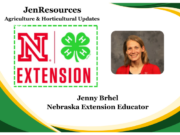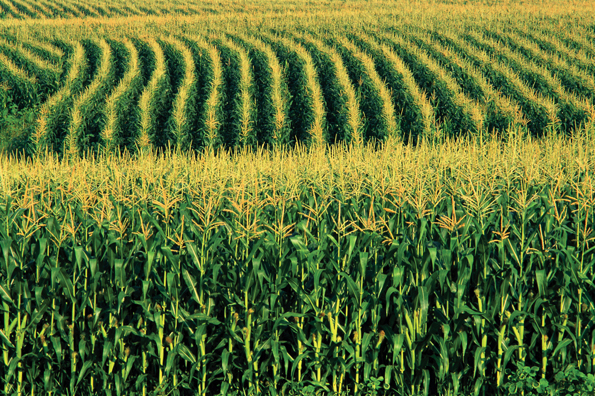Upcoming Events:
Dec. 9: F/R College Dr. David Kohl “Agriculture Today: It is what it is…What Should We Do About It“, 1-4 p.m., Bruning Opera House, Bruning, RSVP: (402) 759-3712
Dec. 11: Women Managing Agricultural Land, 9:30 a.m.-4 p.m., Nebraska Innovation Campus, Lincoln
Dec. 12-13: Know Your Options, Know Your Numbers, 10 a.m.-4 p.m., Fairgrounds, Ord
Dec. 16: Farm Bill Mtg, 9 a.m.-Noon, Extension Office Lincoln
Dec. 16: CSI for Youth: Ag Tour, 5 p.m., jrees2@unl.edu
Dec. 17: Farm Bill Mtg, 9 a.m.-Noon, Fairgrounds 4-H Bldg. Beatrice
Dec. 17: ‘Keeping Stress Levels in Check’ Free Webinar, 12:30 p.m. CST at go.unl.edu/stresswebinar
Dec. 17: Farm Bill Mtg, 1-4 p.m., Fairgrounds in Kearney
Dec. 17: Beef Quality Assurance (BQA) Transportation meeting, 1:30-3:30 p.m., Extension Office in Columbus
Dec. 17: Beef Quality Assurance (BQA) Transportation meeting, 6:00-8:00 p.m., 4-H Bldg. Fairgrounds in York
Dec. 18: Farm Bill Mtg, 9 a.m.-Noon, Fairgrounds in Geneva
Dec. 19: Nebraska Soybean Day and Machinery Expo, Wahoo

Farm Bill: A special thank you to Leann Nelson and her staff from the York/HamiltonCounty Farm Service Agency (FSA) for their help in Friday’s Farm Bill meeting in York! We had 130 pre-registered with at least double that actually attending. Greatly appreciate their help keeping coffee going and the help with set up and tear down! Farm bill decisions are complicated. For this column, I will provide a little perspective and also some first steps for consideration. In future columns, I will walk through options for decision making using the Texas A&M tool and other calculations.
Perspective: We need to keep in mind the current decision is for the 2019-2020 signup only…not the life of the farm bill. The decisions for the 2014 farm bill were extra daunting when we had to speculate what would happen with prices for the duration of the farm bill in addition to considering base acre reallocations. So, this two-year decision followed by the opportunity to change annually from 2021-2023 may be a blessing and take a little pressure off as you’re not ‘stuck’ with your decision for five years.
First Steps: Currently you need to: make an election for 2019/2020 and enroll for 2019, enroll for 2020, and determine whether or not you will update your yields. Your program election and enrollment for 2019 need to be complete by March 15, 2020; enrollment for 2020 by June 30, 2020; and your PLC yield update deadline is September 30, 2020. With making crop insurance decisions these winter months and having RMA data fresh on your mind, consider looking at yield updates now instead of waiting. My recommendations for first steps:
1-Contact your local FSA Office asking for their yield spreadsheet that shows your yields and base acres for each farm number. The spreadsheet will also show what actual yield is necessary in order to update your PLC yields. Even if you choose ARC-CO for your program election, it’s important to at least look at PLC yields as this gives you the opportunity to increase them in the event you ever choose PLC in the future. Because of the adjustment factors, a substantial yield improvement may be necessary to update PLC yield. So, knowing what yield you actually need in order to update can save you time before going through all your RMA data. Any yield updates will apply only to the 2020 year and beyond (not to 2019).
If you choose to update yields, you will need to use actual yields (designated with ‘A’) on your crop insurance forms (not APH). Sometimes crop insurance units are on the same sheet encompassing several farm numbers-so be aware of that as you will need to separate them out (irrigation practice doesn’t matter). If a crop insurance unit includes multiple FSA numbers, you can pro-rate those bushels to split the unit using acres. You also could go back to yield map data or scale tickets if you prefer. Ultimately, keep records of how you determine your yield updates as you will need them if you are spot-checked anytime before the end of this farm-bill period. The landowner also needs to sign off on the yield update and Power of Attorney (POA) is acceptable. The 2014 and 2018 farm bills specified that PLC yield could be certified from a minimum of 0.01 acres planted 1 year of the farm bill period. Randy Pryor shared that with me and he would recommend planting at least 1 acre. He had a grower with milo base acres who planted a 25 acre milo plot one time during the last farm bill period; it yielded well allowing him to update his milo yield. We don’t know what future farm bill rules will entail yet something to consider for the next 5 years if rules for PLC yield updates end up the same as the previous farm bills.
2-If you have any idea on farm program elections for 2019-2020, make an appointment now with your FSA Office and go ahead and enroll for 2019. They will also work through the enrollment paperwork for 2020 if possible. You can always change your election prior to March 15, 2020! All Farm Bill information can be found at farmbill.unl.edu.
Keeping Stress Levels in Check Webinar: A free webinar will be offered December 17 geared for farm and ranch families. The webinar will take place over the noon hour (12:30 p.m. CST) and can be accessed at go.unl.edu/stresswebinar. This webinar will provide strategies for dealing with the stress of farming or ranching in today’s difficult economic environment.


































